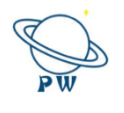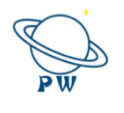Lennox-Gastaut Syndrome Market Size, Share, Demand and Growth by 2032
Research Reports
Sep 20, 2024
The Lennox-Gastaut Syndrome (LGS) Market focuses on treatments and therapies for managing this severe and rare form of epilepsy, typically starting in childhood. LGS is characterized by multiple types of seizures, intellectual disability, and a high degree of resistance to standard anti-seizure medications. Due to its complexity and chronic nature, the LGS market is driven by the need for innovative treatments that can effectively reduce the frequency and severity of seizures while improving the quality of life for patients.
Get Free Sample PDF Brochure:
https://www.marketresearchfuture.com/sample_request/27457
Market Drivers
Increasing Prevalence of Drug-Resistant Epilepsy: LGS is a form of drug-resistant epilepsy (DRE), meaning patients do not respond well to traditional anti-seizure drugs. This drives demand for new, advanced therapies that can address the specific needs of LGS patients, pushing pharmaceutical companies to develop novel solutions.
Innovations in Antiepileptic Drugs (AEDs): The LGS market is experiencing growth due to ongoing research and development in antiepileptic drugs. New drugs, including cannabidiol (CBD)-based treatments like Epidiolex, offer promising alternatives for patients who are resistant to conventional treatments. Advances in understanding the genetic and neurological causes of LGS are also contributing to the development of more targeted therapies.
Growing Awareness and Diagnosis: Increased awareness of LGS among healthcare providers and the availability of more sophisticated diagnostic tools have led to earlier diagnosis and intervention. Early diagnosis is crucial in managing the disorder and preventing further developmental delays, which is stimulating market demand.
Supportive Regulatory Approvals: Regulatory bodies such as the FDA and EMA have provided special designations like orphan drug status to many treatments targeting rare diseases like LGS. These regulatory incentives, including expedited approval processes, encourage pharmaceutical companies to invest in the development of LGS therapies, thereby expanding the market.
Market Challenges
High Cost of Treatment: The cost of LGS treatments, especially newer and advanced drugs, can be prohibitively high, limiting access for many patients. Since LGS requires long-term management, the financial burden on families and healthcare systems is a significant challenge. Furthermore, insurance coverage varies, making access to treatments inconsistent.
Limited Treatment Options: Despite advancements, treatment options for LGS remain limited. Many available therapies only manage symptoms rather than provide a cure, and the high variability in seizure types associated with LGS complicates treatment. Most patients require a combination of therapies, including medications, dietary interventions, and sometimes surgery, which may not always be effective.
Adverse Effects of Medications: Many LGS medications are associated with severe side effects, such as drowsiness, behavioral changes, and cognitive impairments. Balancing the efficacy of these drugs with their safety profiles is a persistent challenge for healthcare providers. This often leads to treatment discontinuation or switching, which can negatively impact the market.
Browse In-depth Market Research Report (118 Pages) on Lennox Gastaut Syndrome Market:
https://www.marketresearchfuture.com/reports/lennox-gastaut-syndrome-market-27457
Market Segmentation
By Drug Type:
-
- Cannabinoid-based Therapies: Drugs like Epidiolex, which contain cannabidiol (CBD), have shown great promise in reducing seizures in LGS patients. The success of CBD-based drugs is expected to boost this segment in the coming years.
- Sodium Channel Blockers: This class includes drugs like lamotrigine and rufinamide, which are commonly used to reduce seizure frequency in LGS.
- Benzodiazepines: Clobazam and other benzodiazepines are often prescribed to manage acute seizures, though their long-term use can lead to dependency and tolerance.
By Therapy:
-
- Medication: Most patients rely on a combination of antiepileptic drugs (AEDs) to manage their seizures. Newer medications are being introduced to complement existing drug treatments.
- Ketogenic Diet: Some patients benefit from a high-fat, low-carbohydrate ketogenic diet, which has been shown to reduce seizure frequency in some cases.
- Surgical Interventions: In severe cases, surgical options like vagus nerve stimulation (VNS) or corpus callosotomy may be considered, though these are typically used as a last resort.
By Distribution Channel:
-
- Hospital Pharmacies: Due to the complexity of LGS treatment, hospital pharmacies are a primary distribution channel, especially for drugs that require strict medical supervision.
- Retail Pharmacies: These pharmacies also play a key role in providing maintenance medications for patients managing LGS at home.
- Online Pharmacies: The growth of online pharmacies has made it easier for patients to access LGS medications, especially those that require long-term, consistent treatment.
Regional Insights
North America: North America, particularly the U.S., dominates the LGS market due to the presence of key pharmaceutical companies, high healthcare expenditure, and advanced healthcare infrastructure. The approval of novel therapies like Epidiolex has significantly boosted the market in this region. Additionally, the availability of genetic testing and specialized epilepsy centers supports the diagnosis and treatment of LGS.
Europe: Europe is another major region in the LGS market, driven by supportive regulatory frameworks and the availability of new treatments. Countries like Germany, France, and the U.K. have strong healthcare systems and significant investments in rare disease treatment, which contribute to the market’s growth.
Asia-Pacific: The Asia-Pacific region is witnessing growth due to increasing awareness about LGS and improving healthcare infrastructure. Japan and China are key markets in this region, supported by growing investments in rare disease research and an expanding pharmaceutical industry.
Rest of the World: The LGS market in Latin America, the Middle East, and Africa is still developing, but increasing healthcare awareness and improved access to medical treatments are expected to drive growth in these regions over the next few years.
Key Players
Key companies in the Lennox-Gastaut Syndrome Market include:
- GW Pharmaceuticals (now part of Jazz Pharmaceuticals): Known for its groundbreaking drug Epidiolex, which is the first CBD-based therapy approved for LGS.
- Eisai Co., Ltd.: Developer of the widely used LGS treatment, rufinamide (Banzel/Inovelon).
- Zogenix (Acquired by UCB): Known for its development of Fintepla (fenfluramine) for the treatment of seizures associated with LGS.
Future Outlook
The Lennox-Gastaut Syndrome Market is expected to grow as new treatments emerge, driven by advancements in epilepsy research and increased regulatory support for rare disease therapies. With ongoing innovation in cannabinoid-based treatments, genetic research, and personalized medicine, the market is poised for steady growth in the coming years.
Related Report:
CD antigen Cancer Therapy Market Research Report – Global Forecast 2032
Down Syndrome Market Research Report – Global Forecast 2032
Dystrophic Epidermolysis Bullosa Treatment Market Research Report – Global Forecast 2032
Metastatic Cancer Treatment Market Research Report – Global Forecast 2032
Medical Electrode Market Research Report – Global Forecast 2032
Ntrk Fusion Gene Positive Advanced Solid Tumor Market Research Report – Global Forecast 2032
Pet Noise Anxiety Market Research Report – Global Forecast 2032
Pleural Effusion Market Research Report – Global Forecast 2032
Prescription Lens Market Research Report – Global Forecast 2032
Rare Neurological Disease Treatment Market Research Report – Global Forecast 2032
About Market Research Future:
Market Research Future (MRFR) is a global market research company that takes pride in its services, offering a complete and accurate analysis with regard to diverse markets and consumers worldwide. Market Research Future has the distinguished objective of providing the optimal quality research and granular research to clients. Our market research studies by products, services, technologies, applications, end users, and market players for global, regional, and country level market segments, enable our clients to see more, know more, and do more, which help answer your most important questions.
Follow Us: LinkedIn | Twitter
Contact Information:
Contact: Market Research Future (Part of Wantstats Research and Media Private Limited) 99 Hudson Street, 5Th Floor New York, NY 10013 United States of America +1 628 258 0071 (US) +44 2035 002 764 (UK) Email: [email protected] Website: https://www.marketresearchfuture.com
Tags:
Research Newswire, English




